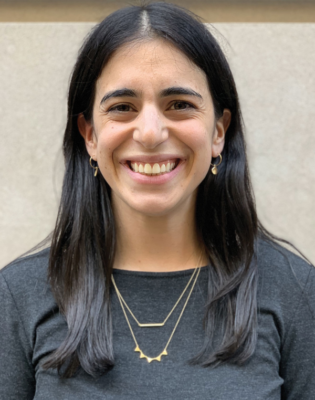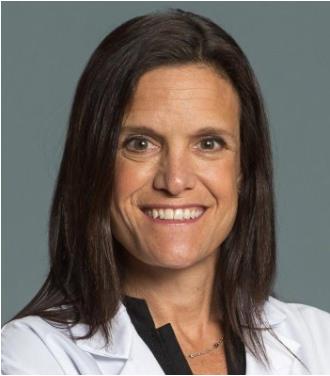5 Tips For Women with Gynecologic Cancer
by Caroline Gellman and Stephanie V. Blank, MD
Many women diagnosed with gynecologic cancer find themselves overwhelmed by the choices they face as they begin navigating the road to recovery. While a diagnosis can pose new and unique challenges, taking a positive approach can ease the experience and may even improve outcomes. In fact, studies have found that the way in which you cope with your diagnosis can have a significant effect on your quality of life. Here are five things you can do to maximize your health and wellness during gynecologic cancer treatment and recovery.
1. Get informed.
Start by gathering information about your diagnosis and what it means. Explore different treatment options to get a sense of the information and gaining insight into the treatment process.
As you begin to evaluate your treatment options, don’t be afraid to have candid conversations with your healthcare team. Write down all your questions between visits so you don’t forget them when talking with your doctor.
Communication and collaboration are the keys to a successful recovery. Most importantly, advocate for yourself the way you would for someone you love.
2. Be your own advocate.
If you’ve been diagnosed with a gynecologic cancer, insist on seeing a gynecologic oncologist. Seeing the right specialist can improve your outcome. Find a doctor you trust, one who listens and takes the time to explain your treatment options. Do not hesitate to ask your treatment team for clarification, whether you importantly, advocate for yourself the way you would for someone you love. We do recommend second opinions. Some people feel funny about asking for a second opinion, or are concerned they will offend their doctor. But, remember, these are big decisions.
Your confidence in your treatment plan is essential. Most doctors expect you to seek a second opinion to confirm your diagnosis or treatment plan. A second opinion will also give you a chance to experience a different facility or another doctor’s bedside manner.
3. Stick to your routine.
Juggling doctor’s appointments and visits to the hospital, paired with the downtime most survivors experience during recovery, can make it difficult to keep up with your day-to-day activities. But many cancer survivors find that sticking to their usual routine can provide a sense of normalcy. Think about what you enjoyed doing before your diagnosis. Whether it’s taking a yoga class, attending religious services, or just going in to work every day, integrating these staples into your schedule can provide both structure and satisfaction.
If you enjoy regular exercise (and even if you don’t!), there is no reason to give it up. Your stamina may not be what you’re used to, but that’s no reason not to exercise. Many survivors find that staying active is good for both the body and the mind. Alternatively, if there is a chore or obligation you dislike, this could be a good time to relieve yourself of it.
Coping with gynecologic cancer can feel isolating, but you don’t have to go it alone.
4. Try something new.
While keeping your usual routine during treatment can give you a sense of normalcy, at the same time, your recovery provides an opportunity for self-reflection and self-discovery. We’re all busy, and it’s easy to put things off on our never-ending to-do lists. But now could be a great time to revisit that list.
Have you dreamed about taking a cooking class or learning a new language? Starting a book club, or even a blog? Evaluating what is most important to you and following through with your goals can be extremely rewarding. Even if you are recuperating right now, thinking about what you will do when you have your energy back may just be the inspiration you need to get through treatment.
5. Surround yourself with support.
Coping with gynecologic cancer can feel isolating, but you don’t have to go it alone. Sharing the experience with people close to you can help you stay positive and may even bring you and your loved ones closer together. Schedule regular phone calls or coffee dates with friends and family to keep them up to date on how you are doing.
In addition, being part of a community can provide camaraderie, whether it’s a support group, a book club, or a faith community. You can also surround yourself with the support of your healthcare team. For example, you may work with a nutritionist, see a social worker, or even explore integrative therapies. Many gynecologic cancer survivors also turn to advocacy as part of their healing process. The people you meet in these advocacy groups are often willing and able to support others going through a similar experience.
Putting It All Together
There is no doubt that coping with gynecologic cancer can be difficult. Try to take recovery one day at a time. Arm yourself with knowledge and a healthcare team you believe in. Do something that brings you joy every day. Most importantly, celebrate each milestone, and share these moments with people you care about. Approaching each new day with a zest for life can make a remarkable difference in your treatment and recovery from gynecologic cancer.

Caroline Gellman (left) is a rising fourth-year medical student at the Icahn School of Medicine at Mount Sinai in New York, NY. She worked in medical journalism with a focus on women’s health for a year during medical school, and she plans to complete residency training in Obstetrics and Gynecology.

Dr. Stephanie Blank (right) is the director of Gynecologic Oncology for the Mount Sinai Health System in New York, NY. She is a professor in the Department of Obstetrics, Gynecology and Reproductive Science at the Icahn School of Medicine, director of Oncology Programs for the Blavatnik Family Women’s Health Institute, and director of Women’s Health for the Blavatnik Family Chelsea Medical Center at Mount Sinai. A gynecologic oncologist, Dr. Blank specializes in the treatment of people with ovarian, cervical, and uterine cancers, as well as the care of women at increased genetic risk for gynecologic cancer.
This article was published in Coping® with Cancer magazine, September/October 2020.


